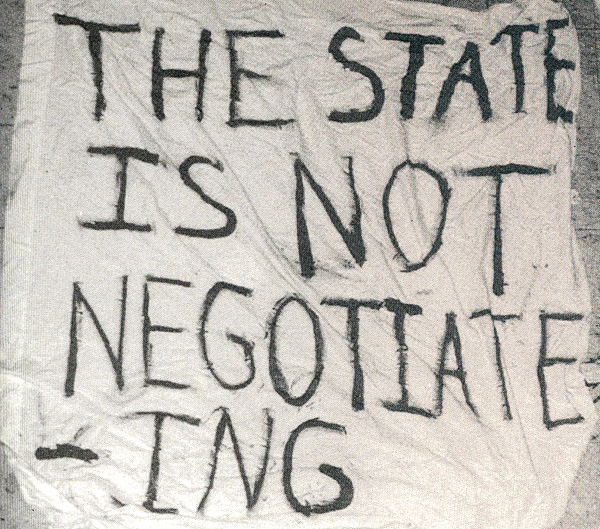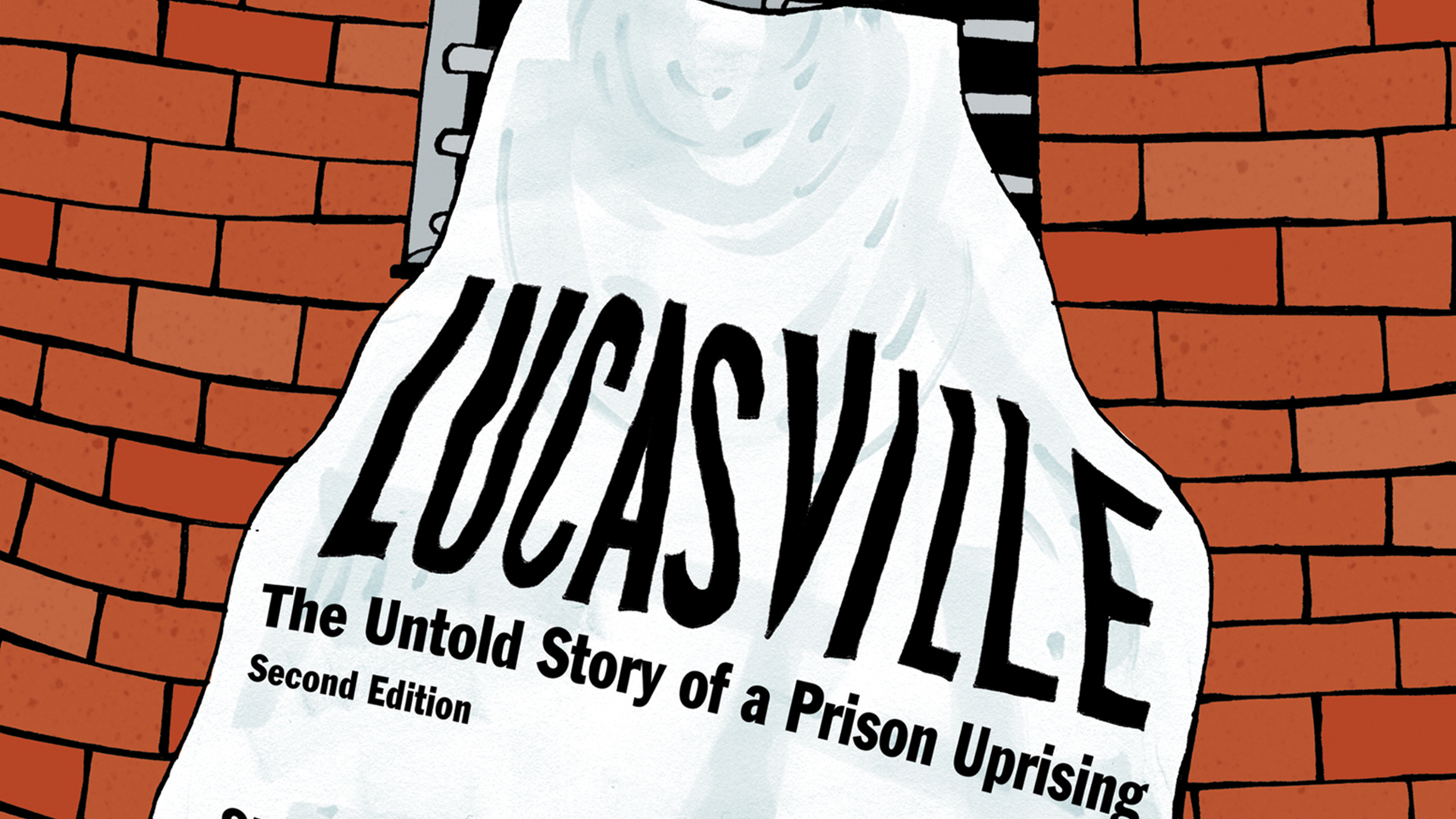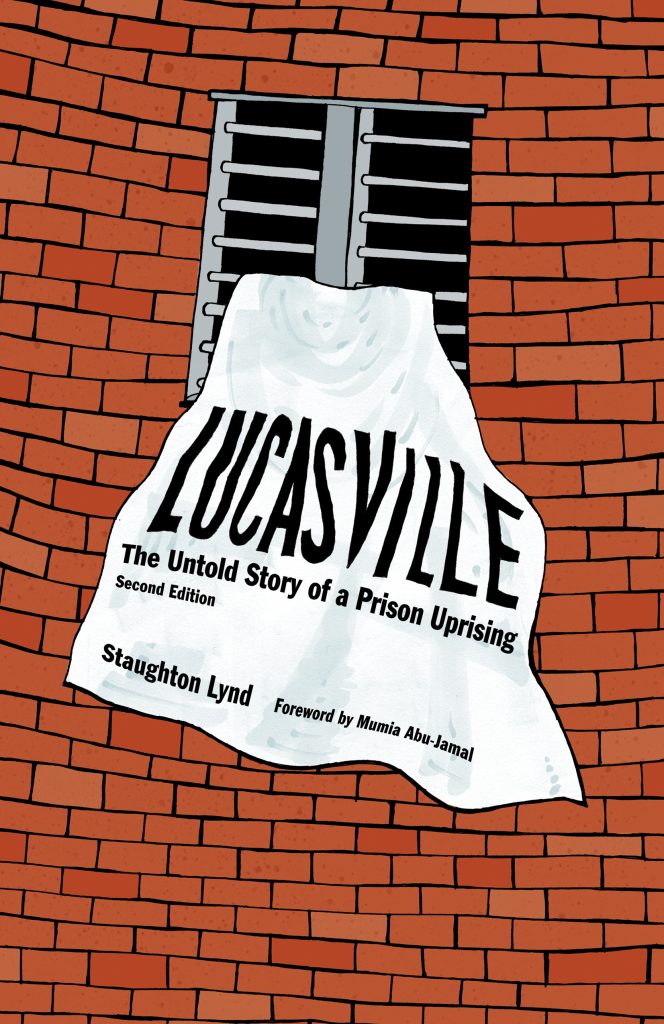By Stefan Christoff
Free City Radio
August 27, 2014
Lucasville: The Untold Story of a Prison Uprising is a striking account on an important and under acknowledged prison uprising in recent US history, communicated by longtime lawyer, social activist and writer Staughton Lynd.
Lucasville articulates so clearly the reality of internal colonial dynamics in the US vis-à-vis the African-American experience, as the majority white town of Lucasville, Ohio, plays host for a major prison with a majority black prisoner population, staffed by almost exclusively white prison guards.
Also this excellent book speaks in detail to a localized manifestation of the greatly expanding US prison industrial complex, a horrifying colonial-capitalist machine that so clearly has, with the active collaboration of politicians and policy makers over recent decades, swept up millions of African-Americans, youth from immigrant communities and also poor, working class white communities.
Importantly Lucasville is a real story of prisoner solidarity and resistance, a book detailing a courageous stand taken by prisoners united across race lines, acting to assert a diverse set of demands, working together against incredible odds and violence in the spring 1993.
Also Lucasville is the story of a legal system that fails so clearly at delivering justice for the Lucasville Five, tried as the leaders of the prison uprising, found guilty in courtroom context that clearly is distant from any ideals of justice. 21 years later, the Lucasville Five remain locked away on Ohio death row, still proclaiming innocence, denied access to face-to-face media interviews, despite a challenge from the American Civil Liberties Union.
A great amount of detail in the book is dedicated to illustrating the injustice of the trails surrounding the Lucasville Five, clearly articulated by author and lawyer Staughton Lynd. Numerous court records and accounts detail with precise argument the injustice delivered, the cynical and violent punitive measures asserted by the state in the Lucasville Five case, deadly verdicts that only seem to have been assured through organized manipulation of the legal system in Ohio.
Introducing this both broadly reflective and extensively researched text on the Lucasville uprising is Mumia Abu-Jamal, who writes :
Lucasville.
The name is evocative. People who hear it, who may know very little
about its recent role in Ohio history, seem to recognize its penal
roots.
It has become a site etched upon the American mind that means prison, like Sing Sing, Marion, or Lewisburg.
The name evokes an aura of fear, of foreboding, of something strangely sinister.
That this exists is a testament to how the state has set aside sites
of invisibility; where people know, in fact, very little of substance;
yet know enough to know that this is something to be feared.
Yet, Lucasville exists simply because millions of people, like you, the reader, allow it to exist. It exists in your name.
Amid the silence that greets its mention, is the silence of ignorance,
an ignorance that serves the interest of the state, but not of the
people.
Lucasville is written to dispel that silence, to
go behind the walls erected by the state (and its complicit media), to
show its true face. It reveals how and why a deadly riot occurred there,
which snuffed out ten lives.
Yet, there is a reason why Lucasville is not the latter-day equivalent of Attica.
The five men who are the focus of this work (who have been called the
Lucasville Five) worked, against great odds, to prevent an Attica
(where over thirty men perished when the state unleashed deadly
violence against the hostages taken, and falsely blamed it on
prisoners). They sought to minimize violence, and indeed, according to
substantial evidence, saved the lives of several men, prisoner and
guard alike.
Yet, as the saying goes, “no good deed goes unpunished.”
The record reflects that these five men couldn’t have been any five
men, drawn from the burgeoning, overcrowded population of Lucasville.
Why these five?
They didn’t snitch. Or, to be more precise: they didn’t lie.
Beyond these words I would simply encourage people to pick-up a copy of Lucasville: The Untold Story of a Prison Uprising published by PM Press, this is a must read book that articulates an important moment of resistance to the contemporary US prison industrial complex.
— Stefan Christoff, August 27, 2014 (accompanying graphics from the book)








